This week I watched...(29 November - 6 November)
- Perrin Faerch
- Dec 6, 2024
- 8 min read
Updated: Dec 7, 2024
So here's a new thing I'm doing that will summarise the highlights, lowlights and well, midlights of my movie-watching weeks. Instead of only posting lengthier reviews once in a blue moon, I'm going to also post my weekly watches in bite-sized (ok, maybe a few mouthfuls) reviews packaged in posts like this.
So here's what I watched from the past week:
MadS (2024)
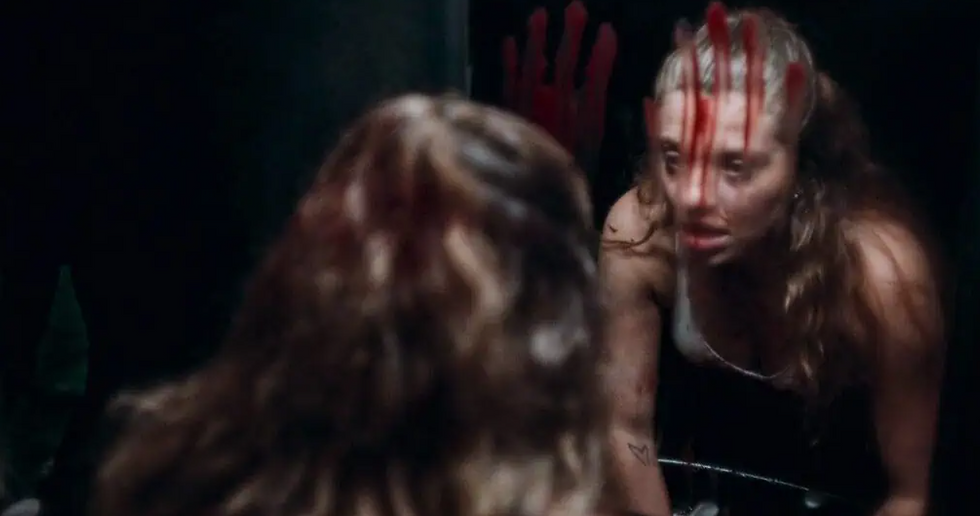
Director: David Moreau
Genre/s: Horror/Thriller Length: 1 Hour 29 Minutes Language: French Country: France
Cast: Lucille Guillaume, Milton Riche, Laurie Pavy, Lewkowski Yovel
Synopsis: A night descends into chaos and horror after a teenager out on a joyride picks up a mysterious injured woman.
My Take: The zombie genre has seen many facelifts since White Zombie (1932). Ones that look to use its tropes and clichés as useful weapons in elevating themes, ideas (pretty much all of George A. Romero’s output) and even the genre up to and including inventive, underdog comedies a la One Cut of the Dead (2019). MadS looks to make an impact in the genre highlighted by its technical approach: An uncut single shot following three characters on one chaotic night. The hobbling, imperfect handheld camerawork adds to this visceral experience of watching someone slowly and then suddenly succumbing to an infection. As though we were right there with them – any moment could have them tearing our face off. And although overused and familiar ticks and quirks of a zombie (the 28 Days Later type zombie) are seen here, the physical performances of these moments are racked with an unpredictable madness that is completely unnerving and terrifying to see unfold in real-time. But despite the viscerally impressive horror of MadS, it can’t escape from an otherwise unremarkable script and one-dimensional characters that spends far too long in its setup as well as its inability to truly break free from or elevate the tropes and clichés as significantly as it initially wanted to. Similar to that of another technical experiment from this year, the slasher In A Violent Nature, one that is shot entirely from behind a Jason-type serial killer on a murder spree, MadS bores and hordes its finest ideas and moments far too late, leaving little room for me to care when things actually get interesting.
Try it if you’re a fan of: In a Violent Nature (2024), 28 Days Later (2002), Rec (2007), intense single-shot films.
Where you can watch it: Shudder (USA, UK, AU), Most VOD platforms (USA).
Here (2024)
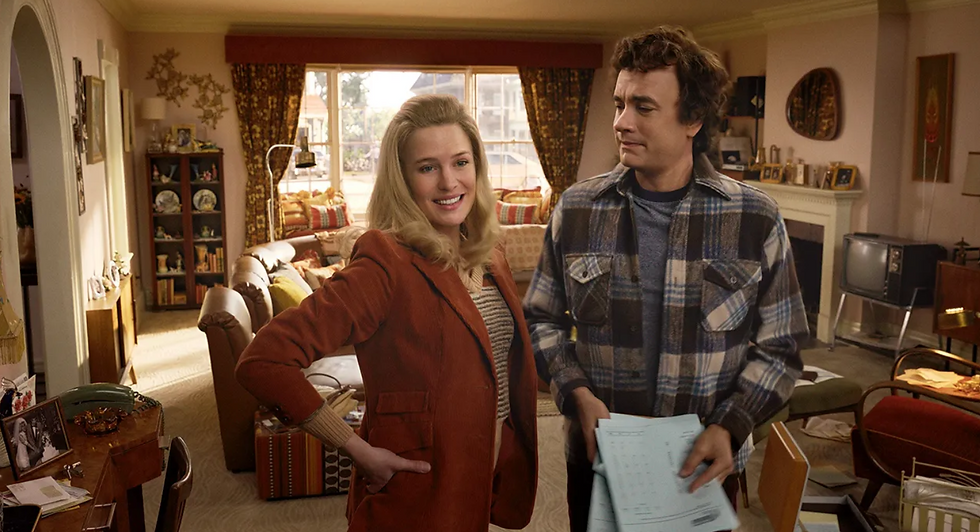
Director: Robert Zemeckis
Genre: Drama Length: 1 Hour 44 Minutes Language: English Country: USA
Cast: Tom Hanks, Robin Wright, Paul Bettany, Kelly Reilly
Synopsis: Spanning over millennia, Here centers around one location and the inhabitants over generations as they deal with love, loss and everything in between.
My Take: Just because something can be adapted doesn’t mean it should, and Here is a prime example of that. Based on Richard McGuire’s graphic novel, the film presents its fascinating idea but ultimately misses the mark in what made the graphic novel so brilliant in its unconventional execution. The book doesn’t have a traditional storyline, presenting the odd recurring character here and there. It’s a collection of the past, present, and future — non-linear vignettes, all told from a single perspective of a room (and whatever else was there before and after). This approach, unpredictable and fragmented, is what makes it such a compelling experience from page to page. So adapting such an unconventional piece was always going to be a challenge. And while Robert Zemeckis is known to be up for the challenge in experimentation, he often misses that mark (for me at least). The panel within the locked-off, same static shot replicates the graphic novel well enough, but like his attempts at animation a la Polar Express in particular, it just all seems a bit off with some dodgy VFX and lighting that makes it all feel unintentionally artificial. He just feels too traditional, too safe, for an adaptation that needs to think outside the box (despite it ironically being boxed in the corner for its entirety).
The graphic novel forces you to hone in on these moments thanks to its striking imagery and its tangible ability to actually hold your attention. But the film version moves on from these moments so swiftly that it doesn’t sit with you quite like its source material. Even the source material's art style feels different on each page whereas the film struggles to maintain the same visual interest. And despite his efforts to explore themes of love, loss, and the passage of time with Here, it often struggles to maintain focus because of its attempt at a more traditional string of storylines. Tom Hanks and Robin Wright deliver adequate performances (undergoing de-aging that isn’t as jarring as I thought it would be), but Zemeckis’ emphasis on their storyline makes the other characters and moments just feel too underdeveloped - character fodder serving as filler. These snapshots end up feeling a little too detached and insincere for me, lacking nuance and the profound, fleeting moments that made the graphic novel so special and so unique. It’s an attempt that had its heart in the right place, but sadly, lacks an impulsive spirit to really make it as unique as it wants to be.
Try it if you’re a fan of: Robert Zemeckis movies, non-linear stories, visually experimental and unique films, A Tom Hanks & Robin Wright’s reunion, tearjerkers.
Where you can watch it: In Theatres (SA and most of the world, in UK Theatres 25 January), Most VOD Platforms (USA, AU).
The Sky Above Zenica (2024)
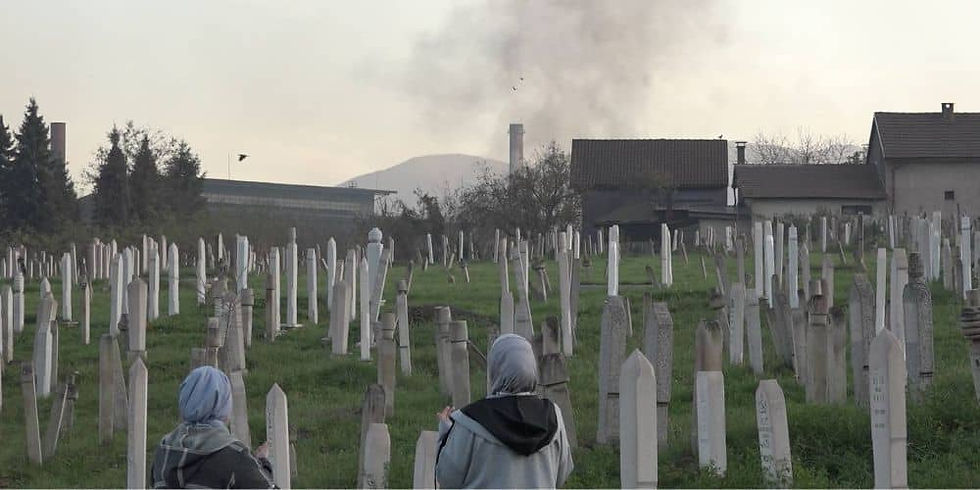
Directors: Nanna Frank Møller & Zlatko Pranjic
Genre: Documentary Length: 1 Hour 33 Minutes Languages: Bosnian/English Countries: Denmark/Bosnia and Herzegovina
Synopsis: Zenica is one of the most polluted cities in the world. This follows the citizens’ united stance in making the international companies behind the pollutant factories accountable as well as affecting change that will save future generations.
My Take: Money and power speak volumes in our world at large and in Zenica’s case, a small city in Bosnia and Herzegovina, it’s at its loudest. Following various citizens and activists, The Sky Above Zenica is brutal as it is earnest – shining the light on some so-called green initiatives that claim to be doing better, but really aren’t. It’s a rightfully maddening insight into the socio-political landscape of our modern world, one that shows just how against the odds poorer countries and its working-class citizens are against international conglomerates with money and power, able to throw money at any problems as long as it benefits those at the top. The Sky Above Zenica does a great job in explaining the situation without stopping its flow, allowing for its fly-on-the-wall approach in press conferences, meetings and personal musings paint a picture of the situation on the ground as well as what is being done to fight back.
Try it if you’re a fan of: Collective (2019), American Factory (2019), environmental and health documentaries.
Where you can watch it: MAX (Eastern Europe), Dailymotion (worldwide).
Juror #2 (2024)
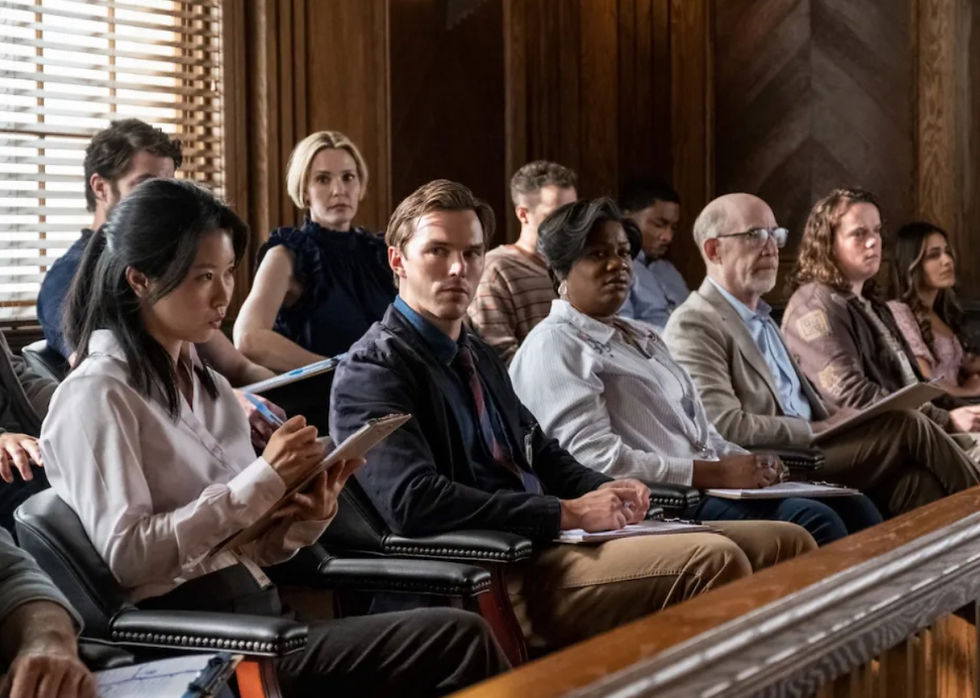
Director: Clint Eastwood
Genres: Drama/Mystery/Thriller/Courtroom Length: 1 Hour 54 Minutes Language: English Country: USA
Cast: Nicholas Hoult, Toni Collette, J.K. Simmons, Zoey Deutch, Gabriel Basso, Kiefer Sutherland, Leslie Bibb, Chris Messina, Cedric Yarbough
Synopsis: A soon-to-be father (Nicholas Hoult) suspects he may have accidentally killed the victim at the centre of a murder trial he is serving jury duty for. Faced with this dilemma, he attempts to sway his fellow jury members that the alleged murderer is an innocent man.
My Take: Clint Eastwood’s best protagonists are seriously flawed despite outward appearances, with clear morals and dilemmas they must face. They shape and keep the stakes in the ground which allows for his films to be so compelling and easy to digest because it rarely needs to speak down to its viewers. He hasn’t had a perfect filmography, but the likes of Unforgiven, Million Dollar Baby, Mystic River, Changeling and his excellent, often overlooked Play Misty For Me are classic American films, in my opinion at least, and are the best examples of just how great Eastwood is as a storyteller (a far better filmmaker than an actor in my opinion). At 94 and what is quite probably his final film, Juror #2 exhibits all the best of what Eastwood has had to offer as a filmmaker over the decades. Come forward and save another, or keep quiet and save yourself. It seems simple right? This conflict isn’t exclusive to just Nicholas Hoult’s character, but also Toni Collette who plays the prosecutor who, if she wins the case, is a shoo-in for District Attorney. Thanks to these stakes, Juror #2’s themes of truth, morality and guilt are always clear and present – clawing and eating away at a protagonist who is both flawed and completely relatable. When the audience (or me at least) is constantly hypothesizing the internal and external conflicts of the film in question, it succeeds in what it sets out to do. Although it gets a touch messy in its final third, Juror #2 sticks its landing with a final scene that drives the stakes further into the ground, refusing to buckle even after the credits roll.
Try it if you're a fan of: 12 Angry Men (1958), courtroom dramas and thrillers, morality tales.
Where you can watch it: MAX (USA – streaming 20 December), Most VOD platforms (USA), In theatres (USA, UK).
Room 666 (1982)
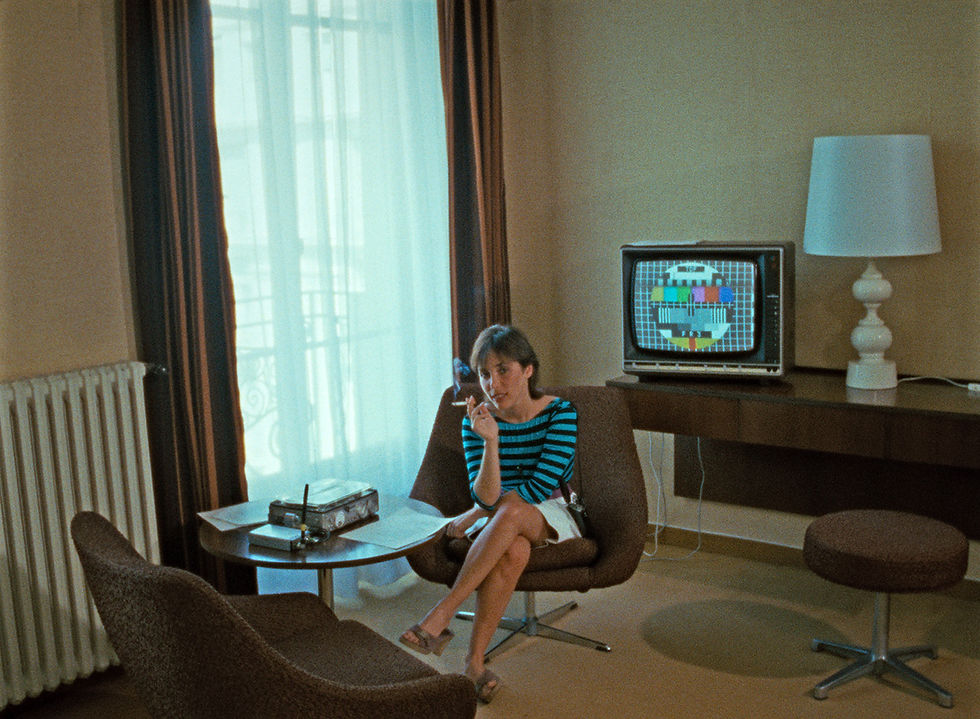
Director: Wim Wenders
Genre: Documentary Length: 45 Minutes Languages: French, English, German, Turkish, Portugese, Italian
Synopsis: During a time of technological advancements within the industry, Wim Wenders asks fellow directors about the future of the film industry. Filmed in a single hotel room in 1982 at the 35th edition of the Cannes Film Festival.
My Take: In the early days of video, filmmakers were both worried and excited about what the arrival of new technological advances would mean for cinema and the art of film. Wenders places filmmakers alone in a room with just a locked-off camera, a sound recorder for them to operate, and an appropriately placed TV behind them (blaring whatever is being broadcasted at the time). He poses a simple question: Is the art of film dying? Featuring the likes of Jean-Luc Godard, Steven Spielberg, Rainer Werner Fassbinder, Werner Herzog, Susan Seidelman and Michelangelo Antonioni (just to name a few), their answers range from pessimistic to optimistic. Shot in 1982, it’s still wildly relevant today. With Netflix, social media, and the age of streaming, filmmakers are still expressing similar concerns, but some are also embracing change as a way to adapt and become better storytellers and artists in the process. Antonioni, in particular, talks about how videotape will lead to greater technological advancements that could restore and preserve their works for generations to come, while also helping them tell new stories in interesting ways. It's a short, punchy discussion piece that reminds both filmmakers and lovers of the medium that as long as there’s a need to tell stories, and a passion to engage with them, we will weather the storm.
Try it if you're a fan of: Heavy hitters of the medium talking film, Werner Herzog answering a question in the most unpredictably Werner Herzog way, unconventional documentaries, the state of cinema.
Where you can watch it: The Criterion Channel (USA).
Exhibiting Forgiveness (2024)
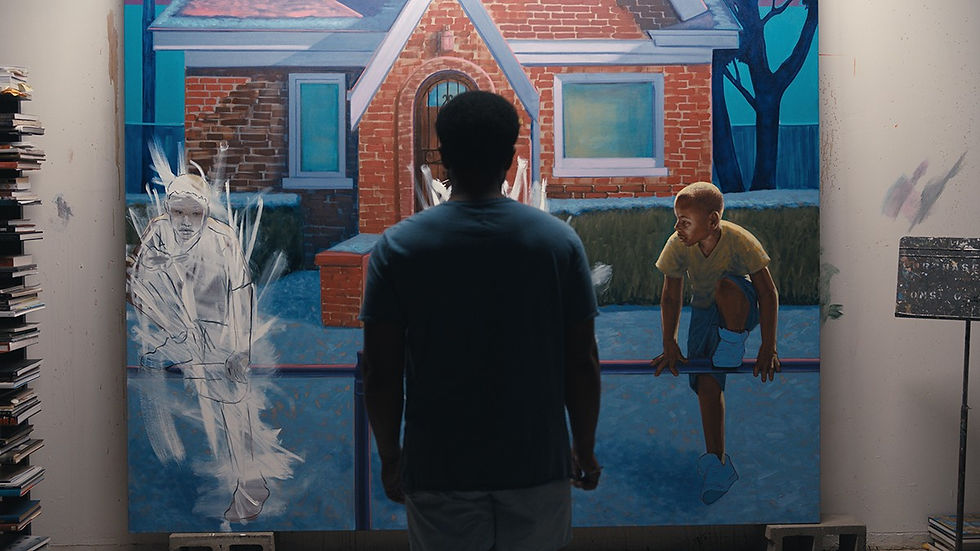
Director: Titus Kaphar
Genre: Drama Length: 1 Hour 57 Minutes Language: English Country: USA
Cast: André Holland, John Earl Jelks, Aunjanue Ellis-Taylor, Andra Day, Ian Foreman, Jaime Ray Newman
Synopsis: An artist’s rising stardom is put on hold when he is forced to confront the demons of his past when his estranged father attempts to reconnect with him.
My Take: Art has the amazing ability to both heal and wound its creator. Exhibiting Forgiveness is a hidden gem where, for Tarrell (André Holland), forgiving and forgetting are not mutually exclusive—and the act of either is harder said than done. As he helps his mother (Aunjanue Ellis-Taylor) pack for her move upstate with him and his family, his estranged drug-addict father (John Earl Jelks) arrives at their doorstep. Appearing clean and seemingly changed for the better, he hopes to repair their broken relationship. While generational trauma and family reconciliation aren’t entirely new in film, they feel incredibly sincere here, never offering easy solutions or journeys for its characters or story. Gorgeously written, performed, shot, and scored, it’s a fine showcase of how art is crucial in confronting our past, present, and future—not just for its creators, but for whoever consumes it. Whether we choose to hold onto that pain or finally heal from it is up to us. “You took the past, but the future, that’s mine.”
Try it if you're a fan of: Barry Jenkins films, art as a means to confront and heal, strong ensemble pieces, films to cry to.
Where you can watch it: Most VOD platforms (USA).
See you next week...



Comments